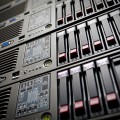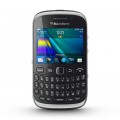 According to reports from Bloomberg, CRN and other sources, computer group Lenovo is in talks to purchase the IBM server division.
According to reports from Bloomberg, CRN and other sources, computer group Lenovo is in talks to purchase the IBM server division.
This would be the second major IBM purchase that Lenovo has made in the past several years as IBM focuses more on core competencies and Lenovo expands into tablets, smartphones and business storage equipment.
While the first IBM deal gave Lenovo PC power and propelled the Chinese computer maker to the second-largest producer of personal computers in the world, acquiring the server division could concentrate the business on more corporate markets, especially markets interested in cloud computing investment.
Traditionally, the IBM server division has sold x86 processor servers, which are designed primarily for mid-sized to large companies looking for inexpensive data storage and network options. More cloud computing means more server storage, especially for major cloud computing companies like Amazon and Google. As a result, finding low-cost, low-energy servers is a key goal for such cloud providers, and the IBM servers aim to meet the demand.
Talks remain preliminary for now, and no pricing information or definition agreements have been announced. However, IBM’s business sectors have been under-performing recently (System X, which sold the servers, lost 9 percent of its revenue in the first quarter of 2013). In Lenovo’s hands, the division could be streamlined, improved and merged with the company’s current storage equipment and network business.
Lenovo has already shown interest in expanding its network options for cloud businesses: In early April, the company announced several new operating system features for its network storage devices, all aimed at making it easy for businesses to manage more complex cloud networks. Advances included new backup tools, faster data transfer and better virtualization technology that allows businesses to run multiple virtual computers at the same time, each with its own customization.
If Lenovo does move deeper into server territory with an IBM acquisition, the corporation will have plenty of competition, as other companies have also noticed the trend. According to a Marketwired press release, AMD is marketing its highly customizable SeaMicro devices toward universities and colleges that want to share research data between professors. HP — the number-one PC seller in the world, just ahead of Lenovo — has recently revealed a new family of servers called Moonshot, designed to save energy and space for the new wave of Big Data and social strategies hitting businesses across the world. To succeed, Lenovo will have to meet these server offerings with updated competencies of its own.
[cf]skyword_tracking_tag[/cf]





